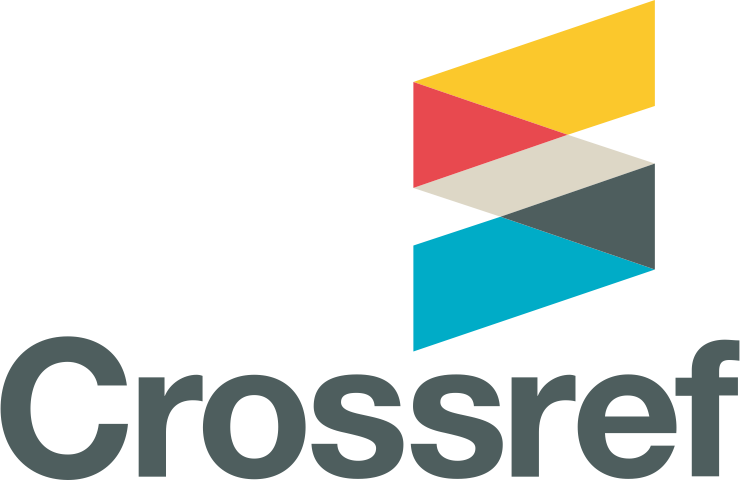Sentiment Analyst on Twitter Using the K-Nearest Neighbors (KNN) Algorithm Against Covid-19 Vaccination
DOI:
https://doi.org/10.33633/jais.v7i2.6734Abstract
The corona virus (2019-nCoV), commonly known as COVID-19 has been officially designated as a global pandemic by the WHO. Twitter, is one of the social media used by many people and is popular among internet users in expressing opinions. One of the problems related to Covid-19 and causing a stir is the procurement of the Covid-19 vaccine. The procurement of the vaccine caused various opinions in Indonesian society, where the uproar was also quite busy being discussed on Twitter and even became a Trending Topic. The opinions that appear on Twitter will then be used as data for the Sentiment Analysis process. One of the members of the House of Representatives (DPR), namely RibkaTjiptaning was also included in the Trending Topic list on Twitter for refusing to receive the Covid-19 vaccine. Sentiment analysis itself is a computational study of opinions, sentiments and emotions expressed textually. Sentiment analysis is also a technique to extract information in the form of a person's attitude towards an issue or event by classifying the polarity of a text. Research related to Sentiment Analysis will be examined by dividing public opinion on Twitter social media into positive and negative sentiments, and using the K-Nearest Neighbor (KNN) algorithm to classify public opinion about COVID-19 vaccination. In the testing section, the Confusion Matrix method is used which then results in an accuracy of 85%, precision of 100%, and recall of 78.94%.References
D. Ukkaz, “SENTIMENT ANALYSIS OF COVID-19 VACCINE WITH DEEP LEARNING,” J. Theor. Appl. Inf. Technol., vol. 100, no. 12, pp. 4513–4521, 2022.
N. M. Abdulkareem, A. Mohsin Abdulazeez, D. Qader Zeebaree, and D. A. Hasan, “COVID-19 World Vaccination Progress Using Machine Learning Classification Algorithms,” Qubahan Acad. J., vol. 1, no. 2, pp. 100–105, 2021.
A. Winanto and C. Budihartanti, “Comparison of the Accuracy of Sentiment Analysis on the Twitter of the DKI Jakarta Provincial Government during the COVID-19 Vaccine Time,” J. Comput. Sci. an Eng., vol. 3, no. 1, pp. 14–27, 2022.
N. A. Azeez, O. E. Victor, and U. E. Junior, “SENTIMENT ANALYSIS OF COVID-19 TWEETS,” FUDMA J. Sci., vol. 5, no. 1996, p. 6, 2021.
R. K. BANIA, “Heterogeneous Ensemble Learning Framework for Sentiment Analysis on COVID-19 Tweets,” INFOCOMP, vol. 20, no. 02, 2021.
F. M. J. M. Shamrat et al., “Sentiment analysis on twitter tweets about COVID-19 vaccines using NLP and supervised KNN classification algorithm,” Indones. J. Electr. Eng. Comput. Sci., vol. 23, no. 1, pp. 463–470, 2021.
Pristiyono, M. Ritonga, M. A. Al Ihsan, A. Anjar, and F. H. Rambe, “Sentiment analysis of COVID-19 vaccine in Indonesia using Naïve Bayes Algorithm,” IOP Conf. Ser. Mater. Sci. Eng., vol. 1088, no. 1, p. 012045, 2021.
N. G. Ramadhan and F. D. Adhinata, “Sentiment analysis on vaccine COVID-19 using word count and Gaussian Naïve Bayes,” Indones. J. Electr. Eng. Comput. Sci., vol. 26, no. 3, p. 1765, 2022.
D. A. Nurdeni, I. Budi, and A. B. Santoso, “Sentiment Analysis on Covid19 Vaccines in Indonesia: From the Perspective of Sinovac and Pfizer,” 3rd 2021 East Indones. Conf. Comput. Inf. Technol. EIConCIT 2021, pp. 122–127, 2021.
N. S. Sattar and S. Arifuzzaman, “Covid-19 vaccination awareness and aftermath: Public sentiment analysis on twitter data and vaccinated population prediction in the usa,” Appl. Sci., vol. 11, no. 13, 2021.
S. Nyawa, D. Tchuente, and S. Fosso-Wamba, “COVID-19 vaccine hesitancy: a social media analysis using deep learning,” Ann. Oper. Res., 2022.
A. M. Almars, E. S. Atlam, T. H. Noor, G. ELmarhomy, R. Alagamy, and I. Gad, “Users opinion and emotion understanding in social media regarding COVID-19 vaccine,” Computing, vol. 104, no. 6, pp. 1481–1496, 2022.
A. Umair and E. Masciari, “Sentimental and spatial analysis of COVID-19 vaccines tweets,” J. Intell. Inf. Syst., 2022.
S. Hota and S. Pathak, “KNN classifier based approach for multi-class sentiment analysis of twitter data,” Int. J. Eng. Technol., vol. 7, no. 3, p. 1372, Jul. 2018.
T. Mustaqim, K. Umam, and M. A. Muslim, “Twitter text mining for sentiment analysis on government’s response to forest fires with vader lexicon polarity detection and k-nearest neighbor algorithm,” J. Phys. Conf. Ser., vol. 1567, no. 3, pp. 8–15, 2020.
S. Kaur, G. Sikka, and L. K. Awasthi, “Sentiment Analysis Approach Based on N-gram and KNN Classifier,” ICSCCC 2018 - 1st Int. Conf. Secur. Cyber Comput. Commun., pp. 13–16, 2018.
S. A. Jafar Zaidi, I. Chatterjee, and S. Brahim Belhaouari, “COVID-19 Tweets Classification during Lockdown Period Using Machine Learning Classifiers,” Appl. Comput. Intell. Soft Comput., vol. 2022, pp. 1–8, Jul. 2022.
V. Kandasamy et al., “Sentimental analysis of covid-19 related messages in social networks by involving an n-gram stacked autoencoder integrated in an ensemble learning scheme,” Sensors, vol. 21, no. 22, 2021.
P. Sharma and T.-S. Moh, “Prediction of Indian election using sentiment analysis on Hindi Twitter,” in 2016 IEEE International Conference on Big Data (Big Data), 2016, pp. 1966–1971.
K. M. A. Hasan, M. S. Sabuj, and Z. Afrin, “Opinion mining using Naïve Bayes,” in 2015 IEEE International WIE Conference on Electrical and Computer Engineering, WIECON-ECE 2015, 2016, pp. 511–514.
B. Bhutani, N. Rastogi, P. Sehgal, and A. Purwar, “Fake News Detection Using Sentiment Analysis,” 2019 12th Int. Conf. Contemp. Comput. IC3 2019, pp. 1–5, 2019.
K. Poddar, G. B. D. Amali, and K. S. Umadevi, “Comparison of Various Machine Learning Models for Accurate Detection of Fake News,” 2019 Innov. Power Adv. Comput. Technol. i-PACT 2019, pp. 1–5, 2019.
Downloads
Published
Issue
Section
License
- Authors retain copyright and grant the journal right of first publication with the work simultaneously licensed under a Creative Commons Attribution License that allows others to share the work with an acknowledgment of the work's authorship and initial publication in this journal.
- Authors are able to enter into separate, additional contractual arrangements for the non-exclusive distribution of the journal's published version of the work (e.g., post it to an institutional repository or publish it in a book), with an acknowledgment of its initial publication in this journal.
- Authors are permitted and encouraged to post their work online (e.g., in institutional repositories or on their website) prior to and during the submission process, as it can lead to productive exchanges, as well as earlier and greater citation of published work (See The Effect of Open Access).









